Planetary Science
-
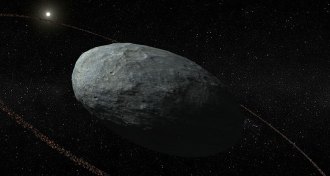 Astronomy
AstronomyOddball dwarf planet Haumea has a ring
The dwarf planet Haumea is now the most distant ringed object spotted in the solar system.
-
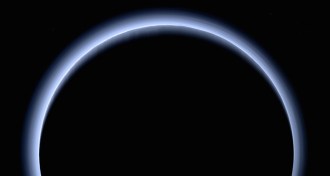 Astronomy
AstronomyWhy it’s good news that Pluto doesn’t have rings
The New Horizons team searched for rings around Pluto, and found nothing. That suggests the spacecraft’s next destination might be ring-free too.
-
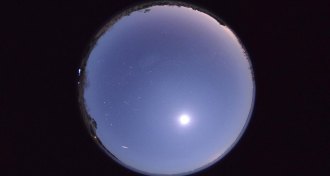 Astronomy
AstronomyHow a meteor shower helped solve the case of the vanishing comet
A missing comet has been linked to a long-lost meteor shower, helping astronomers recover both.
-
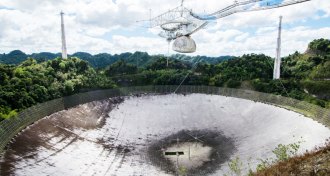 Astronomy
AstronomyNew questions about Arecibo’s future swirl in the wake of Hurricane Maria
The iconic Arecibo Observatory was damaged in Hurricane Maria, but not as much as originally thought. But its funding is still in doubt.
-
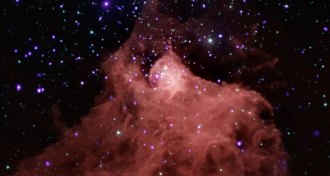 Astronomy
AstronomyIce in space might flow like honey and bubble like champagne
Zapping simulated space ice with imitation starlight makes the ice act more like a liquid than a solid, meaning similar ices in space might be good places for organic chemistry.
-
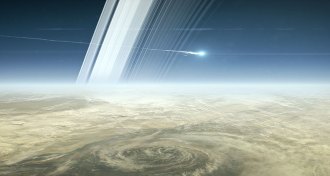 Astronomy
AstronomyR.I.P. Cassini
After 20 years, nearly 300 orbits and pioneering discoveries, the Cassini spacecraft plunges to its death in Saturn’s atmosphere — taking data until its very last breath.
-
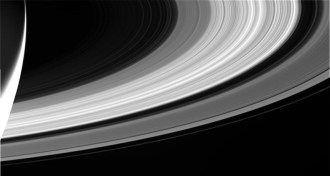 Astronomy
AstronomyThese are Cassini’s parting shots of the Saturn system
In its last hours before plunging into Saturn’s atmosphere, the Cassini spacecraft turned its cameras to some of the system’s well-known features.
-
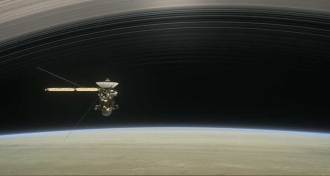 Planetary Science
Planetary ScienceThe Cassini probe dies tomorrow. Here’s how to follow its end
Science News is on the scene at NASA’s Jet Propulsion Laboratory for the big finish of the Cassini mission to Saturn.
-
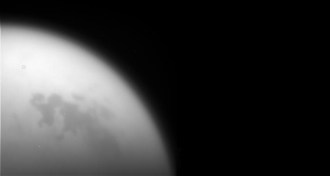 Astronomy
AstronomySo long, Titan. Cassini snaps parting pics of Saturn’s largest moon
The last swing past Saturn’s largest moon sent Cassini heading directly towards the planet — and showed how future spacecraft will explore other moons.
-
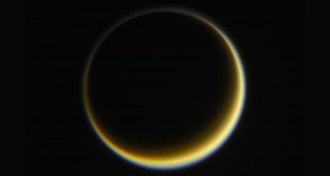 Astronomy
AstronomyFinal flyby puts Cassini on a collision course with Saturn
A “last kiss goodbye” with Saturn’s largest moon sent the Cassini spacecraft on its final trajectory into the planet’s atmosphere.
-
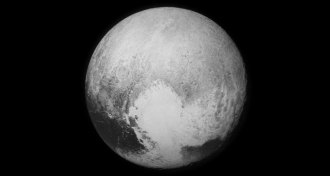 Astronomy
AstronomyPluto’s pits, ridges and famous plain get official names
From Adlivun to Voyager, the International Astronomical Union officially names 14 surface features on the dwarf planet.
-
 Planetary Science
Planetary ScienceReaders were curious about rogue planets, exomoons and more
Readers had questions about rogue planets, human arrival in Australia, and exomoons.